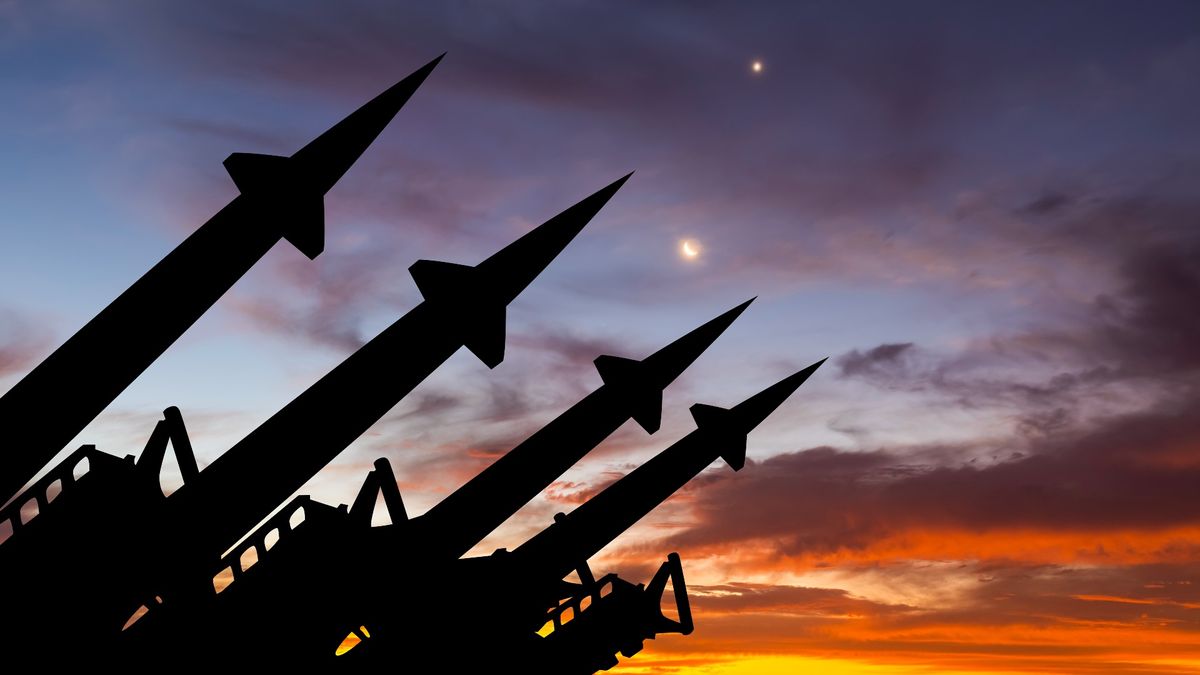“From Proliferation to Peace: Safeguarding a Nuclear-Free Future.”
Nuclear proliferation concerns refer to the apprehensions surrounding the spread of nuclear weapons and technology to additional countries or regions. The possession of nuclear weapons by multiple nations raises the risk of their use, accidental detonation, or falling into the wrong hands. Consequently, efforts to denuclearize certain regions aim to reduce or eliminate nuclear weapons from specific areas, promoting global peace and security. These endeavors involve diplomatic negotiations, arms control agreements, non-proliferation treaties, and disarmament initiatives.
The Impact of Nuclear Proliferation on Global Security
Nuclear proliferation has long been a cause for concern in the realm of global security. The spread of nuclear weapons to more countries increases the risk of their use, whether intentionally or accidentally, and poses a significant threat to international stability. Efforts to denuclearize certain regions have been made in order to mitigate these risks and promote a safer world.
One of the primary concerns surrounding nuclear proliferation is the potential for these weapons to fall into the wrong hands. As more countries acquire nuclear capabilities, the likelihood of non-state actors gaining access to these weapons increases. This could have catastrophic consequences, as terrorist organizations or rogue states may not hesitate to use them. The fear of nuclear terrorism has prompted many nations to take action to prevent the spread of nuclear weapons.
In response to these concerns, various international agreements and organizations have been established to promote nuclear non-proliferation and disarmament. The Treaty on the Non-Proliferation of Nuclear Weapons (NPT), for example, aims to prevent the spread of nuclear weapons, promote disarmament, and facilitate the peaceful use of nuclear energy. The International Atomic Energy Agency (IAEA) plays a crucial role in verifying compliance with the NPT and ensuring that nuclear materials are not diverted for military purposes.
Efforts to denuclearize certain regions have also been a focus of global security initiatives. One notable example is the denuclearization of the Korean Peninsula. North Korea’s pursuit of nuclear weapons has been a major source of concern for the international community. The country’s nuclear tests and missile launches have heightened tensions in the region and raised fears of a potential conflict. Diplomatic efforts, such as the Six-Party Talks involving North Korea, South Korea, China, Japan, Russia, and the United States, have been aimed at persuading North Korea to abandon its nuclear program.
Similarly, the Iran nuclear deal, officially known as the Joint Comprehensive Plan of Action (JCPOA), was a landmark agreement aimed at preventing Iran from developing nuclear weapons. Under the JCPOA, Iran agreed to limit its nuclear activities and allow international inspections in exchange for relief from economic sanctions. However, the future of the agreement has been uncertain since the United States withdrew from it in 2018. The potential for Iran to resume its nuclear program has raised concerns about the stability of the region and the effectiveness of international efforts to prevent nuclear proliferation.
While progress has been made in certain regions, nuclear proliferation remains a complex and ongoing challenge. The desire for nuclear weapons is often driven by a combination of security concerns, prestige, and regional power dynamics. Additionally, the advancement of technology and the potential for clandestine nuclear programs make it difficult to ensure complete disarmament.
In conclusion, nuclear proliferation poses a significant threat to global security. The spread of nuclear weapons increases the risk of their use by non-state actors and heightens tensions between nations. Efforts to denuclearize certain regions, such as the Korean Peninsula and Iran, have been undertaken to mitigate these risks. International agreements and organizations play a crucial role in promoting nuclear non-proliferation and disarmament. However, the challenges associated with nuclear proliferation are complex and ongoing, requiring continued diplomatic efforts and international cooperation to ensure a safer world.
Strategies for Denuclearizing Specific Regions
Nuclear proliferation concerns have been a pressing issue in the international community for decades. The spread of nuclear weapons to more countries increases the risk of nuclear conflict and poses a threat to global security. In response to these concerns, efforts have been made to denuclearize certain regions and prevent the further spread of nuclear weapons.
One region that has been a focus of denuclearization efforts is the Korean Peninsula. The division between North and South Korea has created a tense and volatile situation, with both countries possessing nuclear capabilities. The international community, led by the United States, has engaged in diplomatic negotiations and sanctions to encourage North Korea to abandon its nuclear program. These efforts have had mixed success, with North Korea conducting several nuclear tests despite international condemnation. However, recent diplomatic breakthroughs have raised hopes for a peaceful resolution to the nuclear issue on the Korean Peninsula.
Another region of concern is the Middle East, where several countries have expressed interest in acquiring nuclear weapons. Iran, in particular, has been a focus of international efforts to prevent nuclear proliferation. The Joint Comprehensive Plan of Action (JCPOA), commonly known as the Iran nuclear deal, was signed in 2015 to curb Iran’s nuclear program in exchange for sanctions relief. However, the withdrawal of the United States from the agreement in 2018 has raised doubts about its effectiveness. The international community continues to monitor Iran’s nuclear activities and engage in diplomatic efforts to ensure compliance with non-proliferation commitments.
In South Asia, the rivalry between India and Pakistan has also raised concerns about nuclear proliferation. Both countries possess nuclear weapons and have engaged in several conflicts over the years. Efforts to denuclearize the region have been challenging due to the deep-rooted animosity between the two countries. However, there have been some positive developments, such as the establishment of confidence-building measures and bilateral agreements to reduce the risk of accidental nuclear war. The international community continues to encourage dialogue and peaceful resolution of disputes in South Asia.
Efforts to denuclearize specific regions require a combination of diplomatic negotiations, sanctions, and confidence-building measures. The involvement of major powers, such as the United States, is crucial in providing leadership and resources to support these efforts. Additionally, international organizations like the United Nations and the International Atomic Energy Agency play a vital role in monitoring compliance with non-proliferation commitments and providing technical assistance to countries seeking to develop peaceful nuclear energy programs.
While progress has been made in certain regions, the challenges of denuclearization remain significant. The desire for security and prestige drives some countries to pursue nuclear weapons, despite the risks involved. Moreover, the existence of nuclear weapons in the possession of certain countries creates a deterrent effect, making it difficult to convince them to give up their nuclear capabilities. However, the international community must continue its efforts to promote disarmament and prevent the further spread of nuclear weapons.
In conclusion, nuclear proliferation concerns have prompted efforts to denuclearize specific regions. The Korean Peninsula, the Middle East, and South Asia are among the regions where these efforts have been focused. Diplomatic negotiations, sanctions, and confidence-building measures are some of the strategies employed to achieve denuclearization. While progress has been made, challenges remain, and the international community must continue its commitment to disarmament and non-proliferation efforts. Only through collective action can we ensure a safer and more secure world.
International Cooperation in Addressing Nuclear Proliferation Concerns
Nuclear proliferation concerns have been a pressing issue in the international community for decades. The spread of nuclear weapons to more countries poses a significant threat to global security and stability. Efforts to address these concerns and promote denuclearization in certain regions have been ongoing, with international cooperation playing a crucial role in these endeavors.
One of the primary concerns regarding nuclear proliferation is the potential for these weapons to fall into the wrong hands. The fear of non-state actors, such as terrorist organizations, acquiring nuclear weapons is a nightmare scenario for policymakers worldwide. The devastating consequences of a nuclear attack by a rogue group are unimaginable, making it imperative to prevent the spread of these weapons.
To address these concerns, international cooperation has been instrumental in establishing non-proliferation treaties and agreements. The Treaty on the Non-Proliferation of Nuclear Weapons (NPT) is one such example. Signed in 1968, the NPT aims to prevent the spread of nuclear weapons, promote disarmament, and facilitate the peaceful use of nuclear energy. It has been ratified by the majority of countries, demonstrating a global commitment to curbing nuclear proliferation.
Efforts to denuclearize certain regions have also been a focus of international cooperation. One notable example is the Joint Comprehensive Plan of Action (JCPOA), commonly known as the Iran Nuclear Deal. Negotiated between Iran and the P5+1 countries (United States, United Kingdom, France, Germany, Russia, and China), the JCPOA aimed to limit Iran’s nuclear program in exchange for sanctions relief. While the deal faced criticism and ultimately saw the United States withdraw in 2018, it highlighted the importance of diplomatic efforts in addressing nuclear proliferation concerns.
Another region of concern is the Korean Peninsula. North Korea’s pursuit of nuclear weapons has been a source of tension and instability in the region. International efforts, including the Six-Party Talks involving China, Japan, Russia, South Korea, the United States, and North Korea, have sought to denuclearize the Korean Peninsula. However, progress has been slow, with North Korea conducting multiple nuclear tests and missile launches in defiance of international pressure.
Despite the challenges, international cooperation remains crucial in addressing nuclear proliferation concerns. The International Atomic Energy Agency (IAEA) plays a vital role in monitoring and verifying compliance with non-proliferation agreements. Through inspections and safeguards, the IAEA helps ensure that countries are using nuclear energy for peaceful purposes and not diverting it towards weapons development.
Additionally, diplomatic efforts and dialogue are essential in resolving conflicts and promoting denuclearization. The United Nations Security Council has passed resolutions imposing sanctions on countries that violate non-proliferation obligations, demonstrating the international community’s commitment to preventing nuclear proliferation.
In conclusion, nuclear proliferation concerns continue to be a significant challenge for the international community. The potential for nuclear weapons to fall into the wrong hands poses a grave threat to global security. Efforts to address these concerns and promote denuclearization in certain regions rely heavily on international cooperation. Treaties, agreements, and diplomatic efforts play a crucial role in curbing nuclear proliferation and ensuring the peaceful use of nuclear energy. While progress may be slow and challenges persist, the commitment to preventing the spread of nuclear weapons remains steadfast.In conclusion, nuclear proliferation concerns remain a significant global issue. Efforts to denuclearize certain regions have been made to address these concerns and promote international peace and security. However, achieving complete denuclearization is a complex and challenging task that requires strong political will, effective diplomacy, and international cooperation. Continued efforts and dialogue are necessary to mitigate the risks associated with nuclear weapons and work towards a world free of nuclear proliferation.



